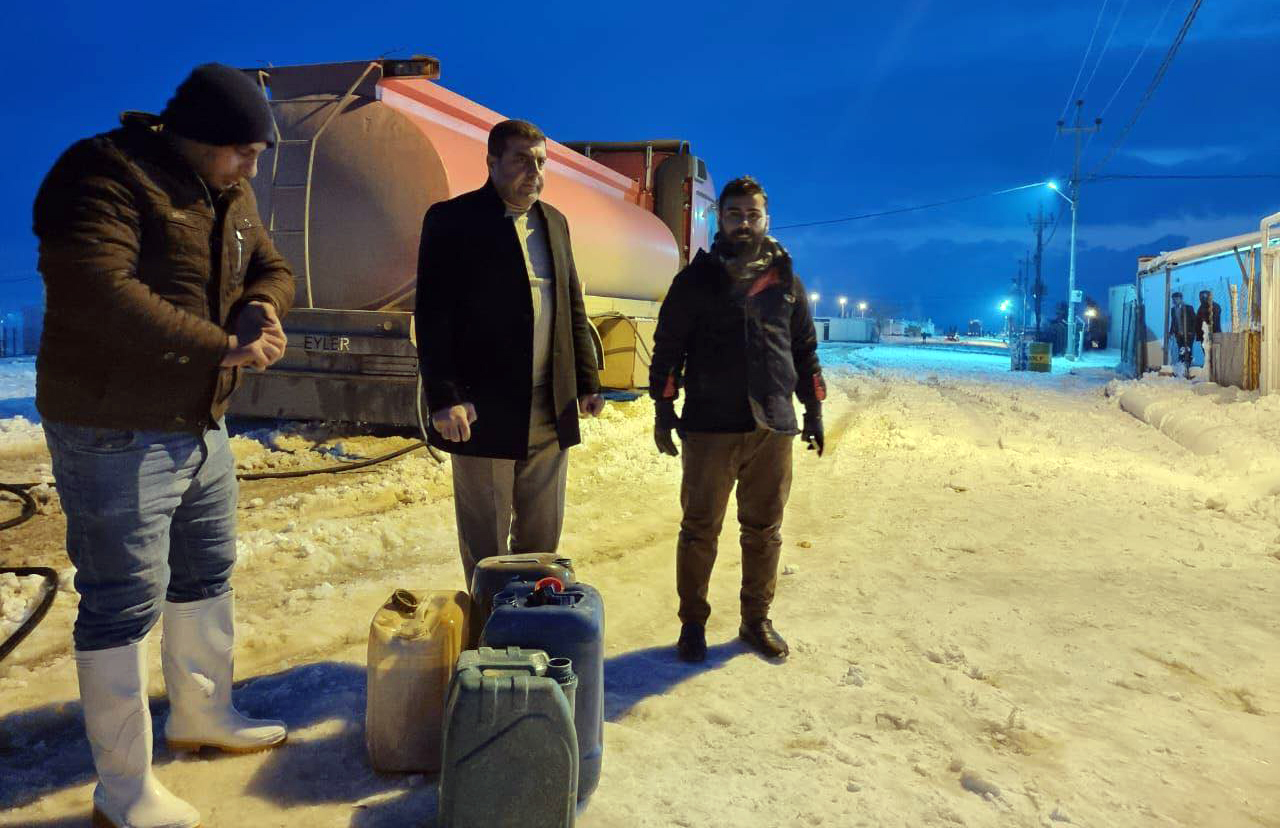The Iraqi Ministry of Migration and Displacement launched the process of distributing Kerosene to the Internally Displaced Persons IDPs, following several months of protests by the IDPs in the camps.
The distribution process started two days ago in Mamilan camp in Sheikhan district of Duhok Northern Province, home to the Ezidi community, and on Friday, January 21, it reached Persiv IDP Camp in Zakho district of Dohuk.
The director of the Iraqi Department of Migration and Displacement in Dohuk, Iskandar Muhammad Amin, said, "Two days ago, the Ministry of Displacement and Migration instructed us to start distributing Kerosene. We had sent the names of all the IDPs to the ministry, and we started the distribution directly from Mamilan camp."
The camp is home to 172 displaced families, 860 people, according to the statistics of the Kurdistan Regional Government KRG.
"Each family's share is 100 liters of Kerosene. After all the camps are covered, we will start distributing the second portions, which is also another 100 liters, meaning that this year each family will receive 200 liters (one barrel)," Amin explained.
The Director of the Department of Migration and Displacement in Dohuk confirmed that the distribution process will continue during the holidays and that they will seek to provide all the displaced with their share of Kerosene as soon as possible.
This step came after raising the issue and highlighting the suffering of the displaced in several media outlets, including the KirkukNow, which published a report on the miserable situation of the displaced in harsh winter, which intensified a week ago due to the snow wave and the temperature dropping to more than -7C degrees.
Video: Displaced people complain about the lack of heating fuel in light of low temperatures and snowfall
Since the start of the cold and rainy season, the IDPs in Dohuk have not received their annual shares of subsidized kerosene neither from the Iraqi government nor from the Kurdistan Regional Government KRG in order to use it for heating in cold weather as state power supply sharply drops downs due to high consumption. Kerosene costs double in private market compared to state-subsidized protions.
The price of a barrel of kerosene in the market ranges between 150,000 (USD100) to 180,000 Iraqi Dinars IQD.
A large part of the displaced are reluctant to return to their areas of origin due to the deteriorating security conditions, the lack of services and the destruction of their homes.
There are more than 664,000 displaced people in the Kurdistan Region, most of them live in Dohuk, and some of them are distributed among 16 camps in that province, KRG figures show.
Pir Alo Kachal, director of Khanki camp in Dohuk, which shelters 2,600 IDPs, told KirkukNow, "We will receive kerosene in a week from now, but the required amount of oil has been secured for the camp's IDPs. All displaced people in the camp will receive their share."
The director of the Department of Migration and Displacement said, "The distribution decision so far includes only the displaced people residing inside the camps, and we are waiting for a response from the ministry regarding the inclusion of the displaced outside the camps."
There are 27,200 displaced families in the camps of Dohuk province, while the number of displaced families residing outside the camps is about 5,000, Amin said.
“These families also have the right to receive their share of kerosene, but the Ministry must decide that."
Shingal, located 120 west of Mosul, center of Nineveh province, used to be home to over half a million Ezidi ethno-religious minority and one of the disputed territories between Baghdad and Erbil. Ezidis also live in Shekhan, Bashiqa and other areas in Duhok northern province.
Seized in August 2014 by ISIS militants whom accused the Ezidis of being “devil worshippers,” Shingal has been the scene of tragedy: a genocidal campaign of killings, rape, abductions and enslavement, and the surviving community fled to safer-heaven IDP camps in the adjacent northern Kurdistan region.
As the war-torn region has not been reconstructed, lack of security, stability, poor infrastructure and inadequate job opportunities makes it hard for the vulnerable community to return home





